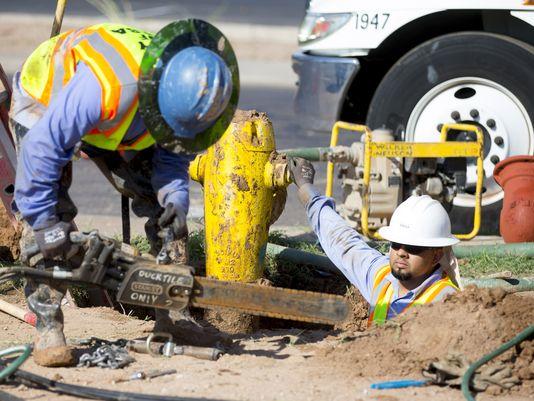
Utility Bonds Canada
Understanding Utility Bonds And Requirements
If you run a business, within the country of Canada, you may very well be required to obtain a Utility Bond. Individual consumers will generally not be required to do so, unless the utility provider deems it to be necessary. This specific type of surety bond is considered to be a financial agreement and helps to protect the utility provider. Within this comprehensive guide, you will learn all about this bond, its purposes and the requirements.

3 Parties Involved
In the event of a utility bond, three parties will be involved. This is universal with all types of surety bonds, but slightly different in this scenario. Below, you will discover more details regarding these three parties.
- Principal – The principal is the consumer or business, who must acquire the utility bond.
- Obligee – This is the utility provider, who requires that you obtain the bond.
- Surety – This is the provider of the surety bond.
In this type of arrangement, the obligee is protected and the surety is the one that offers the reassurance.
Who Will Need Utility Bonds?
Not everyone in Canada will need to obtain a utility bond, but the majority of businesses and commercial establishments will. If you have a commercial storefront, which needs water and electricity, you will need to work alongside a utility provider, in order to fulfill this need. In all likelihood, the utility provider will require you to obtain a utility bond which is a commercial bond, before they’ll provide your commercial building with water or electricity.
In most cases, homeowners are not required to obtain these bonds, but the requirement is entirely up to the utility provider. If the homeowner has been known to miss a lot of payments, the utility provider may require them to post the bond, in order to protect their own business and ensure that the homeowner makes their payments in a timely manner.
How Much Will A Utility Bond Cost?
When it comes to the overall cost, the utility provider will actually maintain control over this determination. It is entirely up to this entity, so the cost can vary substantially. A handful of other factors will play a role in the overall cost. Your specific residential province will also prove to be immensely important. Once the utility company has determined a price, you will need to contact a surety company, which will provide you with a bond premium. This will be a specific percentage of the amount provided by the utility provider.
Generally, this amount can range from 1 to 5% and will depend largely on your current credit score and profile. If you have bad credit, you can expect to pay a much higher percentage than the aforementioned fees.

Understanding Utility Bond Claims
Bond claims tend to be universal in most cases, but they’re slightly different in terms of utility bonds. In this specific type of situation, the bond does not protect the business or you. Instead, it helps to guarantee that the utility provider is not financially harmed, by your inability to pay your monthly bills. If you fail to make your monthly payments on time, you can expect the utility company to file a complaint against you.
If the surety company rules in the favor of the utility provider, they will go ahead and compensate the company for the penal amount, which was initially agreed upon. Then, you will be required to reimburse the surety for these expenses. With this in mind, it is in your best interest to avoid claims, by paying your bills on time!
Getting A Utility Bond Now
Obtaining a utility bond isn’t difficult, but you will want to shop around, so you can  obtain the best price possible. With this in mind, you should begin filling out utility bond applications and acquiring quotes immediately.
obtain the best price possible. With this in mind, you should begin filling out utility bond applications and acquiring quotes immediately.
Other Types of Commercial Surety Bonds we provide:
- Auto Dealer Bond – Used in the automobile industry for dealerships.
- Fidelity Bond – Businesses purchase this bond to cover themselves from fraudulent employees.
- Janitorial Bond – Janitorial companies use this bond to protect the client’s interest.
- Customs Bond – Required by the Federal government of Canada for brokers.
- Medical and Medicaid Bond – Protects patients from fraudulent behavior.
- Lottery Bond – Required to be purchased by business that engage in lottery.
- Union Bond – Obtained by union workers.